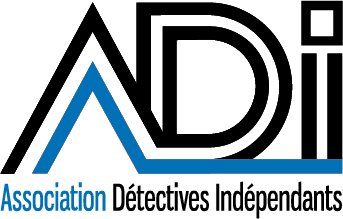The Detective and Partners firms are members of the A.D.I. network
The Association of Independent Detectives was born out of the desire to bring together several investigators, independent and experienced, operating across the entire national territory to better meet the specific needs of the legal system's users.
To date, the association comprises18 investigation firms distributed throughout the entirety of France.
What is a Private Investigator?
Although the terms "private detective" or "private law investigator" might be more illustrative to define the profession, the correct term is "Private Investigator."
A private investigator is a professional specialized in the collection of information and evidence, often aimed at solving private or commercial cases. With expertise in surveillance, investigation, and analysis, this agent works discreetly to gather essential intelligence, whether for legal matters, fraud investigations, background checks, or searches for missing persons. Their meticulous approach and strict adherence to confidentiality make them a valuable ally for those seeking answers in complex situations.
MORE GENERALLY, THE PRIVATE INVESTIGATOR IS THE ONE IN CHARGE OF MANAGING EVIDENCE BEFORE THE COURTS.
Who does the private detective work for?
Private detectives typically work for individual clients or businesses but can also work for public entities.
Individual clients might hire a private detective for personal matters such as suspicion of infidelity in a marriage, searching for missing people, or gathering evidence for family disputes like child custody.
Businesses may employ private detectives to investigate cases of theft, fraud, or unfair competition, to prove fraudulent sick leaves, or to protect intellectual property and trade secrets.
Lawyers and bailiffs might also enlist private detectives to find information (address, employer, bank domiciliation...) to better defend their client.
Lastly, insurance companies can use private detectives to investigate suspicious claims, as in cases of insurance fraud or feigned injuries.
It's important to note that private detectives must operate within the law and are often regulated by local or national legislation.
How the investigations proceed?

The initial contact at Detective and Partners
The first point of contact allows us to verify the feasibility of the investigation both legally (legality, legitimacy, morality) and technically. If the intervention is feasible, the firm then develops the action strategy and decides on the technical means to be implemented to gather intelligence or to facilitate the reporting of evidence admissible in court. The days and hours of intervention are agreed upon together to allow for the preparation of the quote, which is sent by email.

Technical means during the investigations
The thorough examination of the file and the reconnaissance of the locations enable investigators to decide on the action methods to be implemented. Depending on geographical challenges (layout of the area, urban or rural zone), the vigilance of the person under investigation, or their means of transportation (vehicle(s) with powerful engines and/or two-wheelers), the firm may decide to deploy additional agents, including motorcyclists, or to employ specific equipment.

Daily investigation tracking
The firm provides its clients with a link to allow secure access to daily reports. Through this means, you will be able to follow your case, communicate your suggestions on the investigation techniques implemented, or make schedule adjustments. We believe your collaboration is essential, especially if you have proximity to the target, particularly to convey information we may not yet possess.

Detailed reports from our private detectives
At the end of the mission, we provide you with a detailed report recounting all the facts directly related to the mission's objective. This report, with your agreement, is also sent to your lawyer as a draft so that they can indicate the desired modifications in relation to the evidence they wish to highlight in their plea. The reports are precise and can be corroborated by article 202 witness statements or photographs taken in public places.
OUR REPORTS ARE ADMISSIBLE BEFORE THE COURTS
In France, the admissibility of private detective reports in court follows strict criteria, focused on the legality of the information collection method. According to jurisprudence, these reports are admissible as long as they comply with the law and do not infringe on privacy rights. The Court of Cassation has highlighted in several rulings the importance of legality in evidence collection. For example, in a ruling from November 7, 2000 (Court of Cassation, 1st civil chamber, no. 98-22139), the Court recognized the validity of a private detective's report, emphasizing that surveillance and information collection by a detective did not constitute an unlawful invasion of privacy in itself. This jurisprudence demonstrates that, as long as detectives operate within the legal framework, their reports can be used as evidence, leaving it to the judge to assess their relevance and weight in each specific case. The Court of Cassation first recognized the admissibility of private detectives' reports in a ruling from November 7, 1962. It was established that private detectives' investigation reports could be considered as procedural documents. Since this ruling, the Court of Cassation has consistently upheld its jurisprudence based on the same principle.
Our authorization is controlled by the National Council of Private Security Activities (CNAPS).





